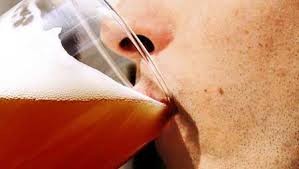Transport segment addiction to substances

Transport segment addiction to substances is leading in death on our roads
Transport segment addiction to substances: Legal response to drugged driving
There is no doubt that our transport segment addiction to substances is leading in fatal road carnage. One of the most effective measures to have been taken was in 1988 where the Department of Transportation responsible for commercial drivers, airline pilots and train engineers introduces the per se standard for illegal drug use where any indication of recent illegal drug use was considered be a violation of the law. This was a step bold enough and since then many states globally have adopted this “per se” laws, so that it is illegal to drive a motor vehicle if there is any detectable level of a prohibited drug or its metabolites in the driver’s blood. Even though this (per se) standard is not a measure of impairment, it is an indicator of illegal driving behavior. As a way of controlling road carnage, doctor Dalal Akoury MD who is also a veteran addiction expert supports the steps taken and adds that this need to be approached from all direction. And for that reason she establish a health center (AWAREmed health center) to primarily help in transforming each individual’s life through increasing awareness about health and wellness and by empowering individuals to find their own inner healing power. You can therefore call her on telephone number 843 213 1480 to schedule an appointment for the commencement of your treatment process.
Drug evaluation and classification
As a measure to bringing sanity in the public transport sector and also to reduce the levels of drunk driving, many states are beginning to implement drug regulation and classification programs objectively to train the police officers to be the drug recognition experts. Under this program police officers are educated on specific detection skills based on the characteristics in a person’s appearance and behaviors which may be associated with drug intoxication. With this knowledge when the officer suspects the driver is under the influence of any drug or an element of drug intoxication the office request for a blood or urine sample to be taken from the suspect and be submitted to a laboratory for an examination and confirmation of the suspicion and appropriate action taken depending on the result.
Transport segment addiction to substances: Drugged driving is hazardous
As mention above many lives are lost on our roads and studies have established that majority of deaths are as a result of the driver being intoxicated with a given drug and this is not any news anyone would want to listen to often. Those risking the lives of others by taking drugs and still insist to drive must take note that drugs are substances which acts negatively on the brain and central nervous system thereby affecting ones driving skills. These drugs affect the brain differently and are very hazardous depending on how they are used, the amount consumed, the history of the user, and other factors. To get the effects of these drugs better let us discus some the effects related to these drugs as follows:
Transport segment addiction to substances: Legal response to drugged driving
http://www.integrativeaddictionconference.com/wp-admin



